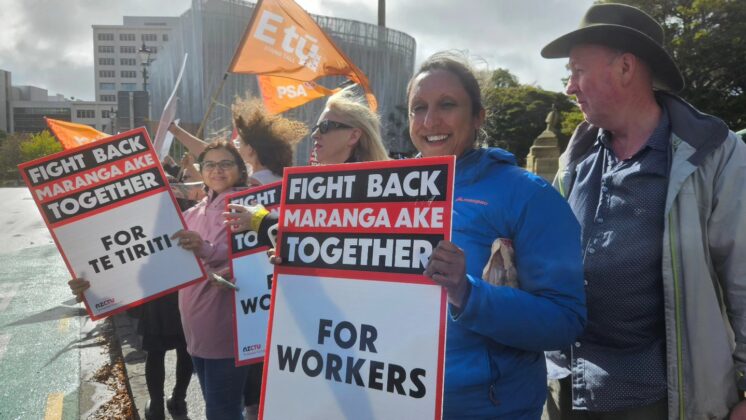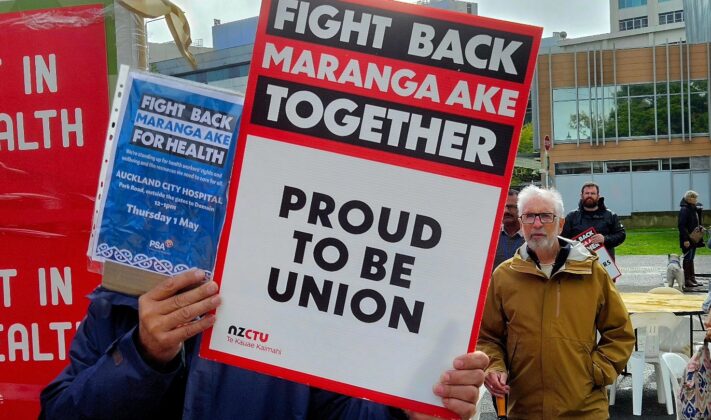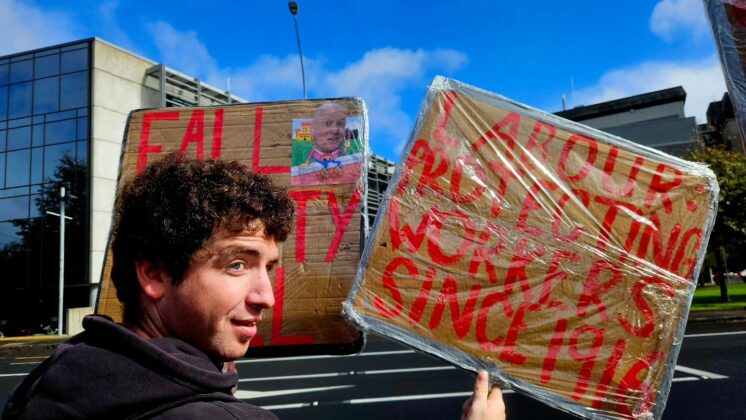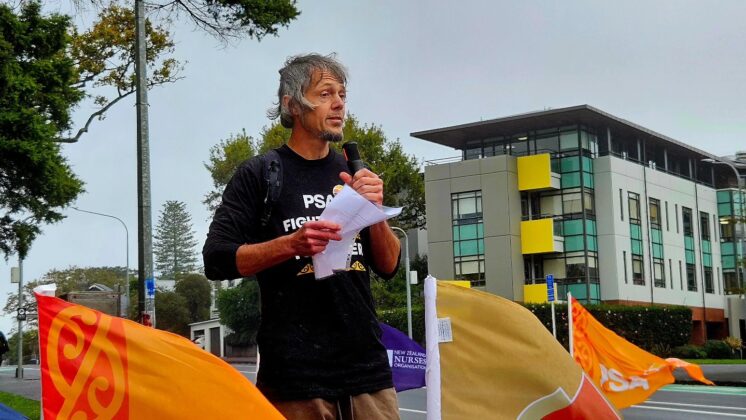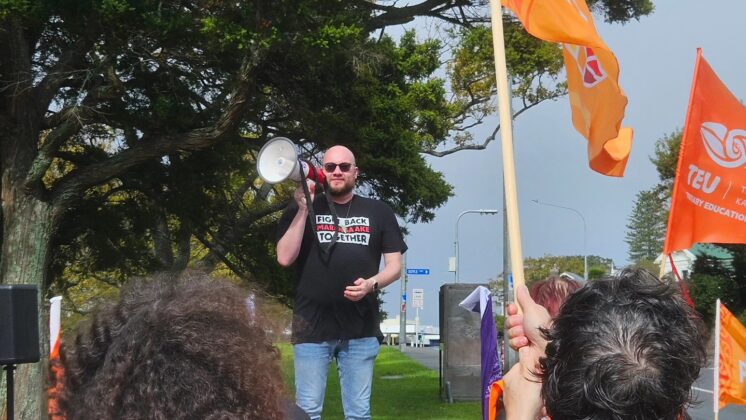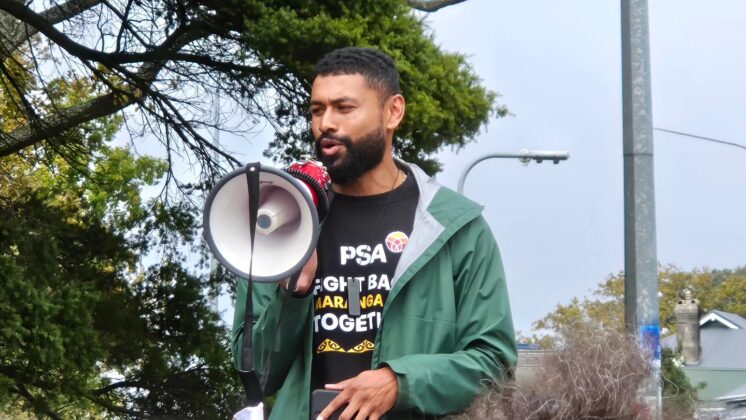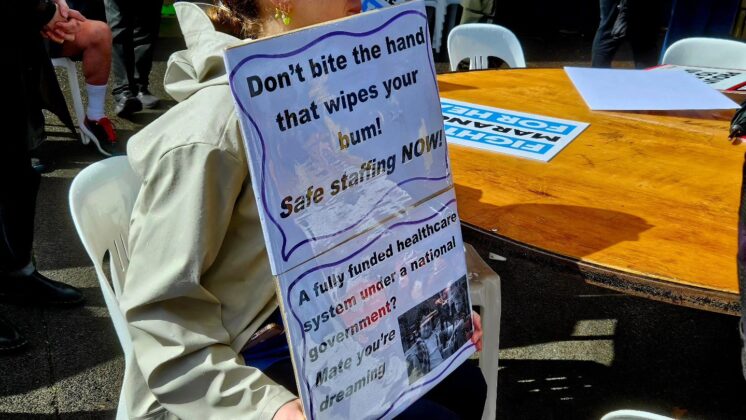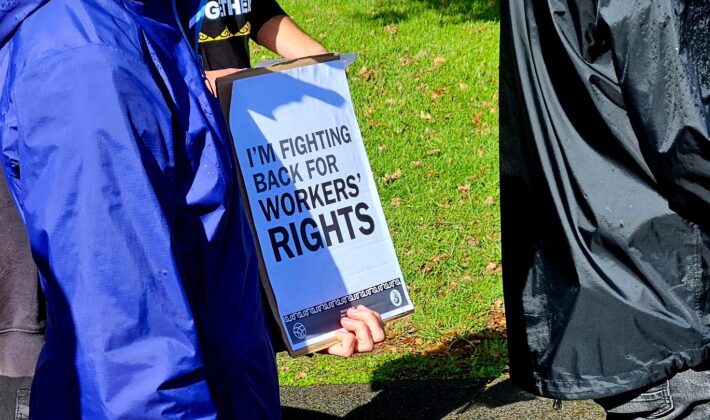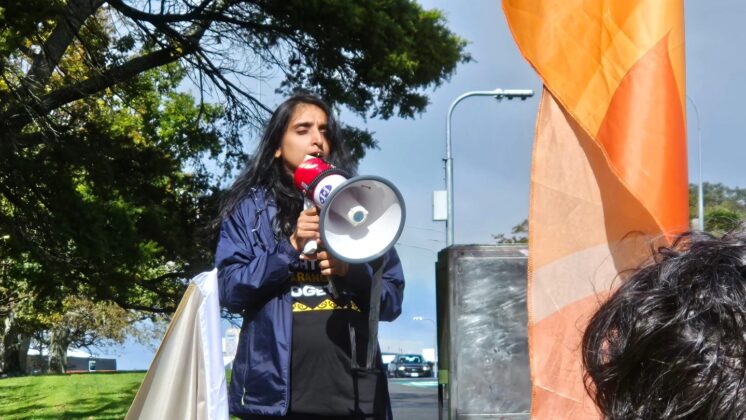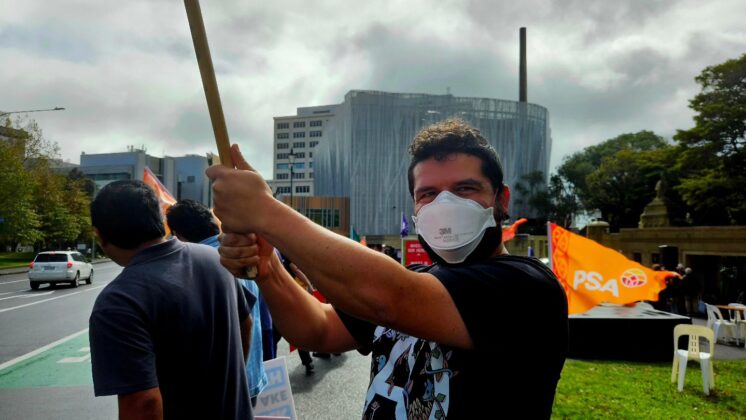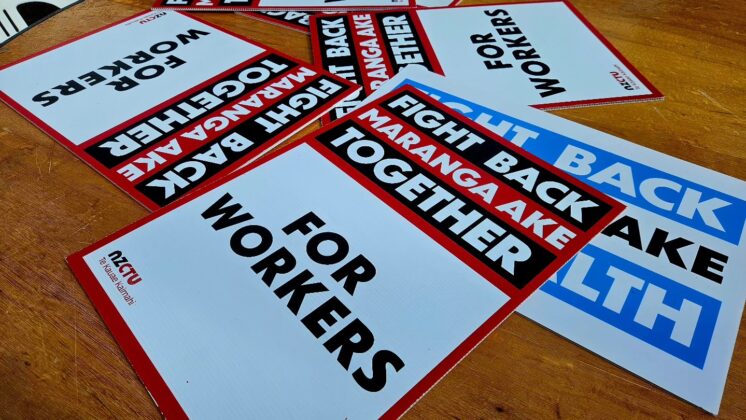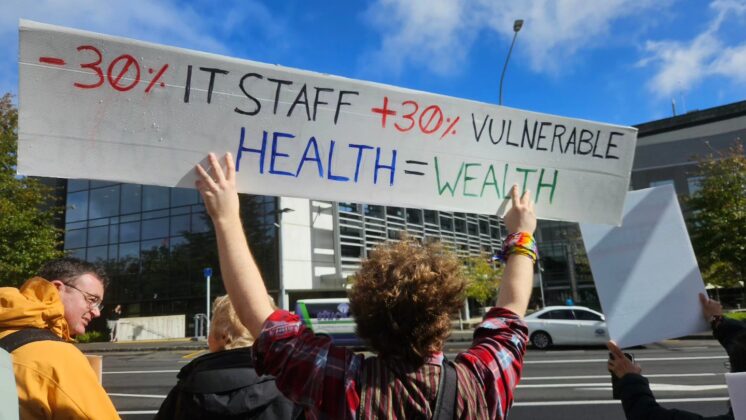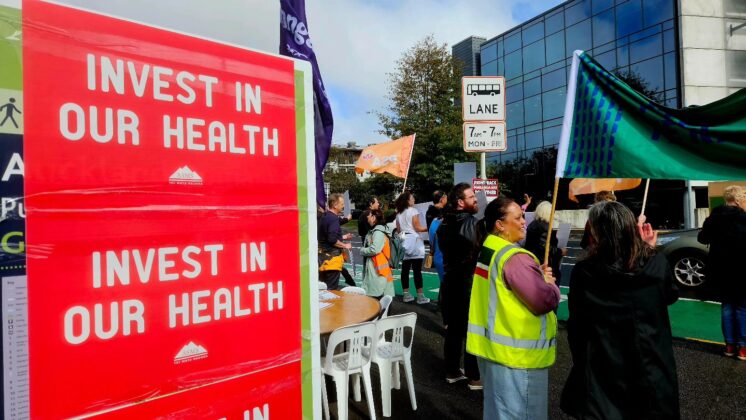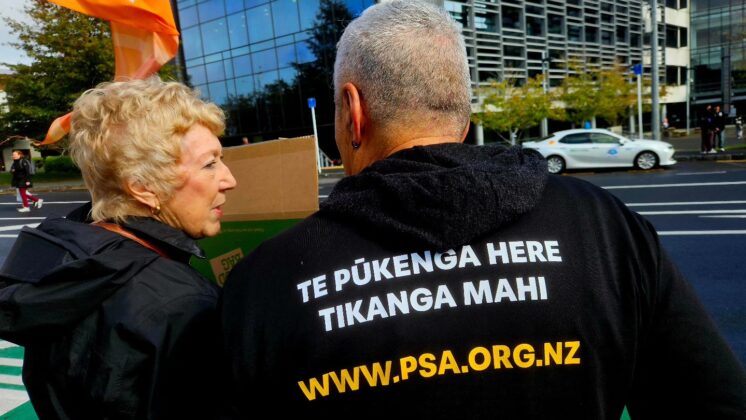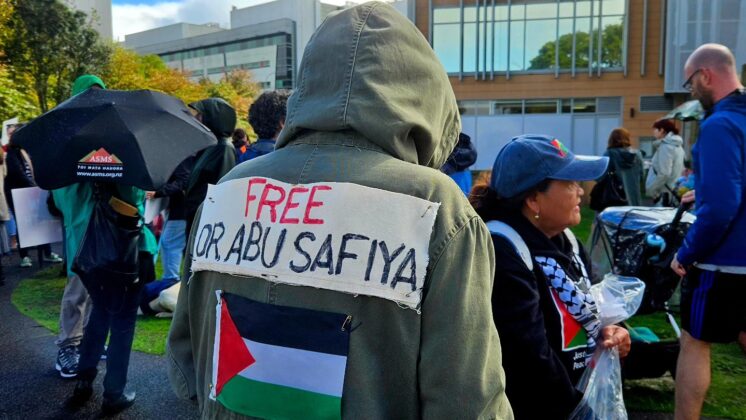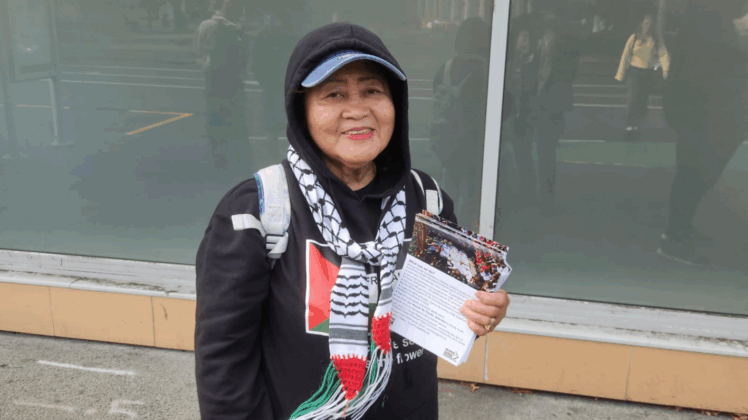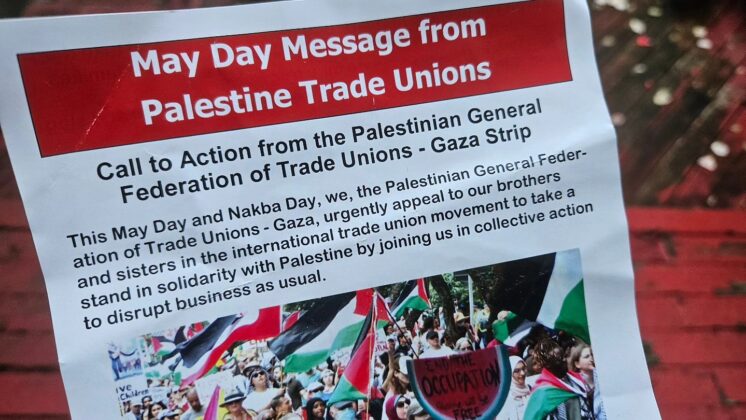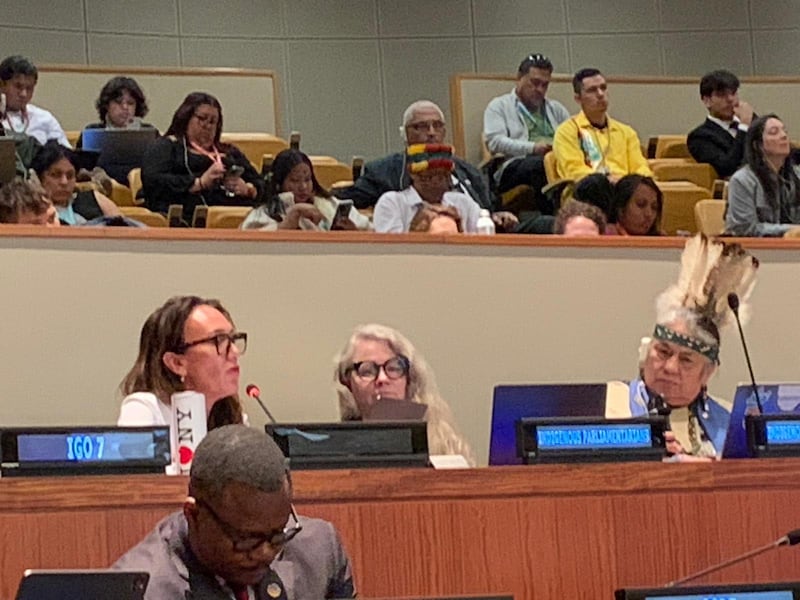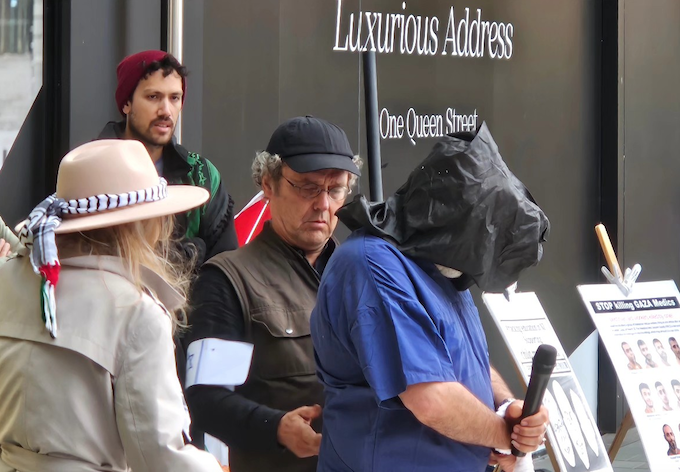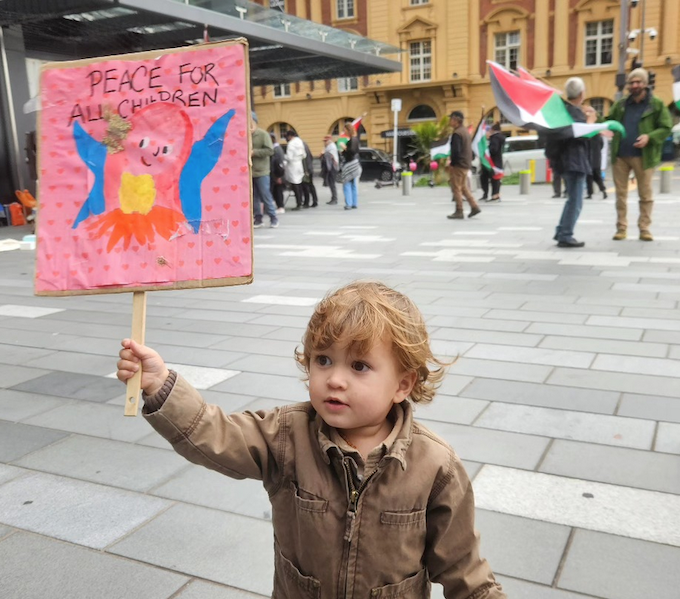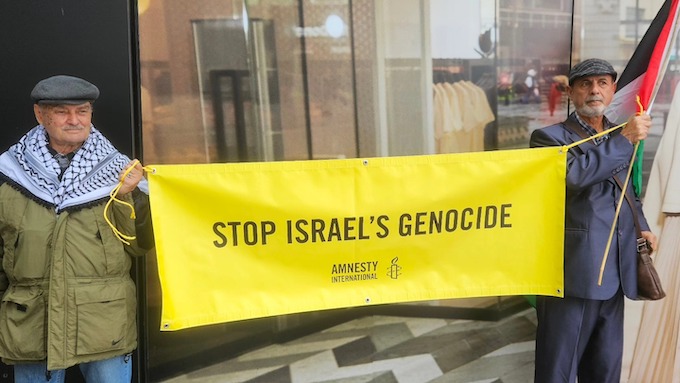ANALYSIS: By Jonathan Cook in Middle East Eye
If you imagined Western politicians and media were finally showing signs of waking up to Israel’s genocide in Gaza, think again.
Even the decision this week by several Western states, led by the UK, to ban the entry of Bezalel Smotrich and Itamar Ben Gvir, two far-right Israeli cabinet ministers, is not quite the pushback it is meant to seem.
Britain, Australia, Canada, New Zealand and Norway may be seeking strength in numbers to withstand retaliation from Israel and the United States. But in truth, they have selected the most limited and symbolic of all the possible sanctions they could have imposed on the Israeli government.
Their meagre action is motivated solely out of desperation. They urgently need to deter Israel from carrying through plans to formally annex the Occupied West Bank and thereby tear away the last remnants of the two-state comfort blanket — the West’s solitary pretext for decades of inaction.
And as a bonus, the entry ban makes Britain and the others look like they are getting tough with Israel on Gaza, even as they do nothing to stop the mounting horrors there.
Even the Israeli Ha’aretz newspaper’s senior columnist Gideon Levy mocked what he called a “tiny, ridiculous step” by the UK and others, saying it would make no difference to the slaughter in Gaza. He called for sanctions against “Israel in its entirety”.
“Do they really believe this punishment will have some sort of effect on Israel’s moves?” Levy asked incredulously.
2500 sanctions on Russia
Remember as Britain raps two cabinet ministers on the knuckles that the West has imposed more than 2500 sanctions on Russia.
While David Lammy, the UK’s Foreign Secretary, worries about the future of a non-existent diplomatic process — one trashed by Israel two decades ago — Palestinian children are still starving to death unseen.
The genocide is not going to end unless the West forces Israel to stop. This week more than 40 Israeli military intelligence officers went on an effective strike, refusing to be involved in combat operations, saying Israel was waging a “clearly illegal” and “eternal war” in Gaza.
Yet Starmer and Lammy will not even concede that Israel has violated international law.
What is clear is that British Prime Minister Keir Starmer’s sighs of regret last month — expressing how “intolerable” he finds the “situation” in Gaza — were purely performative.
Starmer and the rest of the Western establishment have continued tolerating what they claim to find “intolerable”, even as the death toll from Israel’s bombs, gunfire and starvation campaign grow day by day.
Those emaciated children — profoundly malnourished, their stick-then legs covered by the thinnest membrane of skin — aren’t going to recover without meaningful intervention. Their condition won’t stabilise while Israel deprives them of food day after day. Sooner or later they will die, mostly out of our view.
Parents must risk lives
Meanwhile, desperate parents must now risk their lives, forced to run the gauntlet of Israeli gunfire, in a — usually forlorn — bid to be among the handful of families able to grab paltry supplies of largely unusable, dried food. Most families have no water or fuel to cook with.
As if mocking Palestinians, the Western media continue to refer to this real-life, scaled-up Hunger Games — imposed by Israel in place of the long-established United Nations relief system — as “aid distribution”.
We are supposed to believe it is addressing Gaza’s “humanitarian crisis” even as it deepens the crisis.
On the kindest analysis, Western capitals are settling back into a mix of silence and deflections, having got in their excuses just before Israel crosses the finishing line of its genocide.
They have readied their alibis for the moment when international journalists are allowed in — the day after the population of Gaza has either been exterminated or violently herded into neighbouring Sinai.
Or more likely, a bit of both.
Truth inverted
What distinguishes Israel’s ongoing slaughter of the two million-plus people of Gaza is this. It is the first stage-managed genocide in history. It is a Holocaust rewritten as public theatre, a spectacle in which every truth is carefully inverted.
That can best be achieved, of course, if those trying to write a different, honest script are eliminated. The extent and authorship of the horrors can be edited out, or obscured through a series of red herrings, misdirecting onlookers.
Israel has murdered more than 220 Palestinian journalists in Gaza over the past 20 months, and has been keeping Western journalists far from the killing fields.
Like the West’s politicians, the foreign correspondents finally piped up last month — in their case, to protest at being barred from Gaza. No less than the politicians, they were keen to ready their excuses.
They have careers and their future credibility to think about, after all.
The journalists have publicly worried that they are being excluded because Israel has something to hide. As though Israel had nothing to hide in the preceding 20 months, when those same journalists docilely accepted their exclusion — and invariably regurgitated Israel’s deceitful spin on its atrocities.
If you imagine that the reporting from Gaza would have been much different had the BBC, CNN, The Guardian or The New York Times had reporters on the ground, think again.
The truth is the coverage would have looked much as it has done for more than a year and a half, with Israel dictating the story lines, with Israel’s denials foregrounded, with Israel’s claims of Hamas “terrorists” in every hospital, school, bakery, university, and refugee camp used to justify the destruction and slaughter.
British doctors volunteering in Gaza who have told us there were no Hamas fighters in the hospitals they worked in, or anyone armed apart from the Israeli soldiers that shot up their medical facilities, would not be more believed because Jeremy Bowen interviewed them in Khan Younis rather than Richard Madeley in a London studio.
Breaking the blockade
If proof of that was needed, it came this week with the coverage of Israel’s brazen act of piracy against a UK-flagged ship, the Madleen, trying to break Israel’s genocidal aid blockade.
Israel’s law-breaking did not happen this time in sealed-off Gaza, or against dehumanised Palestinians.
Israel’s slaughter of the two million-plus people of Gaza is the first stage-managed genocide in history. It is a Holocaust rewritten as public theatre
Israel’s ramming and seizure of the vessel took place on the high seas, and targeted a 12-member Western crew, including the famed young Swedish climate activist Greta Thunberg. All were abducted and taken to Israel.
Thunberg was trying to use her celebrity to draw attention to Israel’s illegal, genocidal blockade of aid. She did so precisely by trying to break that blockade peacefully.
The defiance of the Madleen’s crew in sailing to Gaza was intended to shame Western governments that are under a legal — and it goes without saying, moral — obligation to stop a genocide under the provisions of the 1948 Genocide Convention they have ratified.
Western citizens wring hands
Western capitals have been ostentatiously wringing their hands at the “humanitarian crisis” of Israel starving two million people in full view of the world.
The Madleen’s mission was to emphasise that those states could do much more than tell two Israeli cabinet ministers they are not welcome to visit. Together they could break the blockade, if they so wished.
Britain, France and Canada — all of whom claimed last month that the “situation” in Gaza was “intolerable” — could organise a joint naval fleet carrying aid to Gaza through international waters. They would arrive in Palestinian territorial waters off the coast of Gaza.
At no point would they be in Israel territory.
Any attempt by Israel to interfere would be an act of war against these three states — and against Nato. The reality is Israel would be forced to pull back and allow the aid in.
But, of course, this scenario is pure fantasy. Britain, France and Canada have no intention of breaking Israel’s “intolerable” siege of Gaza.
None of them has any intention of doing anything but watch Israel starve the population to death, then describe it as a “humanitarian catastrophe” they were unable to stop.
The Madleen has preemptively denied them this manoeuvre and highlighted Western leaders’ actual support for genocide — as well as let the people of Gaza know that a majority of the Western public oppose their governments’ collusion in Israel’s criminality.
‘Selfie yacht’
The voyage was intended too as a vigorous nudge to awaken those in the West still slumbering through the genocide. Which is precisely why the Madleen’s message had to be smothered with spin, carefully prepared by Israel.
The Israeli Foreign Ministry issued statements calling the aid ship a “celebrity selfie yacht“, while dismissing its action as a “public relations stunt” and “provocation”. Israeli officials portrayed Thunberg as a “narcissist” and “antisemite”.
When Israeli soldiers illegally boarded the ship, they filmed themselves trying to hand out sandwiches to the crew — an actual stunt that should appall anyone mindful that, while Israel was concern-trolling Western publics about the nutritional needs of the Madleen crew, it was also starving two million Palestinians to death, half of them children.
Did the British government, whose vessel was rammed and invaded in international waters, angrily protest the attack? Did the reliably patriotic British media rally against this humiliating violation of UK sovereignty?
No, Starmer and Lammy once again had nothing to say on the matter.
They have yet to concede that Israel is even breaking international law in denying the people of Gaza all food and water for more than three months, let alone acknowledge that this actually constitutes genocide.
Instead, Lammy’s officials — 300 of whom have protested against the UK’s continuing collusion in Israeli atrocities — have been told to resign rather than raise objections rooted in international law.
Bypass legal advisers
According to sources within the Foreign Office cited by former British ambassador Craig Murray, Lammy has also insisted that any statements relating to the Madleen bypass the government’s legal advisers.
Why? To allow Lammy plausible deniability as he evades Britain’s legal obligation to respond to Israel’s assault on a vessel sailing under UK protection.
The media, meanwhile, has played its own part in whitewashing this flagrant crime — one that has taken place in full view, not hidden away in Gaza’s conveniently engineered “fog of war”.
Much of the press adopted the term “selfie yacht” as if it were their own. As though Thunberg and the rest of the crew were pleasure-seekers promoting their social media platforms rather than risking their lives taking on the might of a genocidal Israeli military.
They had good reason to be fearful. After all, the Israeli military shot dead 10 of their predecessors — activists on the Mavi Marmara aid ship to Gaza — 15 years ago. Israel has killed in cold blood American citizens such as Rachel Corrie, British citizens such as Tom Hurndall, and acclaimed journalists such as Shireen Abu Akleh.
And for those with longer memories, the Israeli air force killed more than 30 American servicemen in a two-hour attack in 1967 on the USS Liberty, and wounded 170 more. The anniversary of that crime — covered up by every US administration — was commemorated by its survivors the day before the attack on the Madleen.
‘Detained’, not abducted
Israel’s trivialising smears of the Madleen crew were echoed uncritically from Sky News and The Telegraph to LBC and Piers Morgan.
Strangely, journalists who had barely acknowledged the tsunami of selfies taken by Israeli soldiers glorifying their war crimes on social media were keenly attuned to a supposed narcissistic, selfie culture rampant among human-rights activists.
As Thunberg headed back to Europe on Tuesday, the media continued with its assault on the English language and common sense. They reported that she had been “deported” from Israel, as though she had smuggled herself into Israel illegally rather than being been forcibly dragged there by the Israeli military.
But even the so-called “serious” media buried the significance both of the Madleen’s voyage to Gaza and of Israel’s lawbreaking. From The Guardian and BBC to The New York Times and CBS, Israel’s criminal attack was characterised as the aid ship being “intercepted” or “diverted”, and of Israel “taking control” of the vessel.
For the Western media, Thunberg was “detained”, not abducted.
The framing was straight out of Tel Aviv. It was a preposterous narrative in which Israel was presented as taking actions necessary to restore order in a situation of dangerous rule-breaking and anarchy by activists on a futile and pointless excursion to Gaza.
The coverage was so uniform not because it related to any kind of reality, but because it was pure propaganda — narrative spin that served not only Israel’s interests but that of a Western political and media class deeply implicated in Israel’s genocide.
Arming criminals
In another glaring example of this collusion, the Western media chose to almost immediately bury what should have been explosive comments last week from Israeli Prime Minister Benjamin Netanyahu.
He admitted that Israel has been arming and cultivating close ties with criminal gangs in Gaza.
He was responding to remarks from Avigdor Lieberman, a former political ally turned rival, that some of those assisted by Israel are affiliated to the jihadist group Islamic State. The most prominent is named Yasser Abu Shabab.
The Western media either ignored this revelation or dutifully accepted Netanyahu’s self-serving characterisation of these ties as an alliance of convenience: one designed to weaken Hamas by promoting “rival local forces” and opening up new “post-war governing opportunities”.
The real aim — or rather, two aims: one immediate, the other long term — are far more cynical and disturbing.
More than six months ago, Palestinian analysts and the Israeli media began warning that Israel — after it had destroyed Gaza’s ruling institutions, including its police force – was working hand in hand with newly reinvigorated criminal gangs.
Israel’s immediate aim of arming the criminals — turning them into powerful militias — was to intensify the breakdown of law and order. That served as the prelude to a double-barrelled Israeli disinformation campaign.
Instead of the UN’s trusted and wide distribution network across Gaza, the GHF’s four “aid hubs” were perfectly designed to advance Israel’s genocidal goals
Prime looting position
These gangs were put in a prime position to loot food from the United Nations’ long-established aid distribution system and sell it on the black market. The looting helped Israel falsely claim both that Hamas was stealing aid from the UN and that the international body had proven itself unfit to run humanitarian operations in Gaza.
Israel and the US then set about creating a mercenary front group — misleadingly called the Gaza Humanitarian Foundation — to run a sham replacement operation.
Instead of the UN’s trusted and wide distribution network across Gaza, the GHF’s four “aid hubs” were perfectly designed to advance Israel’s genocidal goals.
They are located in a narrow strip of territory next to the border with Egypt. Palestinians are forced to ethnically cleanse themselves into a tiny area of Gaza — if they are to stand any hope of eating — in preparation for their expulsion into Sinai.
They have been herded into a massively congested area without the space or facilities to cope, where the spread of disease is guaranteed, and where they can be more easily massacred by Israeli bombs.
An increasingly malnourished population must walk long distances and wait in massive crowds in the heat in the hope of small handouts of food. It is a situation engineered to heighten tensions, and lead to chaos and fighting.
All of which provide an ideal pretext for Israeli soldiers to halt “aid distribution” pre-emptively in the interests of “public safety” and shoot into the crowds to “neutralise threats”, as has happened to lethal effect day after day.
Repeated ‘aid hub’ massacres
The repeated massacres at these “aid hubs” mean that the most vulnerable — those most in need of aid — have been frightened off, leaving gang members like Abu Shabab’s to enjoy the spoils.
On Wednesday, Israel massacred at least 60 Palestinians, most of them seeking food, in what has already become normalised, a daily ritual of bloodletting that is already barely making headlines.
And to add insult to injury, Israel has misrepresented its own drone footage of the very criminal gangs it arms, looting aid from trucks and shooting Palestinian aid-seekers as supposed evidence of Hamas stealing food and of the need for Israel to control aid distribution.
All of this is so utterly transparent, and repugnant, it is simply astonishing it has not been at the forefront of Western coverage as politicians and media worry about how “intolerable the situation” in Gaza has become.
Instead, the media has largely taken it as read that Hamas “steals aid”. The media has indulged an entirely bogus Israeli-fuelled debate about the need for aid distribution “reform”.
And the media has equivocated about whether it is Israeli soldiers shooting dead those seeking aid.
Of course, the media has refused to draw the only reasonable conclusion from all of this: that Israel is simply exploiting the chaos it has created to buy time for its starvation campaign to kill more Palestinians.
Calibrated warlordism
But there is much more at stake. Israel is fattening up these criminal gangs for a grander, future role in what used to be termed the “day after” — until it became all too clear that the period in question would follow the completion of Israel’s genocide.
It comes as no surprise to any Palestinian to hear confirmation from Netanyahu that Israel has been arming criminal gangs in Gaza, even those with affiliations to Islamic State.
It should not surprise any journalist who has spent serious time, as I have, living in a Palestinian community and studying Israel’s colonial control mechanisms over Palestinian society.
For years, Israel’s ultimate vision for the Palestinians – if they cannot be entirely expelled from their historic homeland – has been of carefully calibrated warlordism
Palestinian academics have understood for at least two decades — long before Hamas’ lethal one-day break-out from Gaza on 7 October 2023 — why Israel has invested so much of its energy in dismantling bit by bit the institutions of Palestinian national identity in the occupied West Bank and East Jerusalem.
The goal, they have been telling me and anyone else who would listen, was to leave Palestinian society so hollowed out, so crushed by the rule of feuding criminal gangs, that statehood would become inconceivable.
As the Palestinian political analyst Muhammad Shehada observes of what is taking place in Gaza: “Israel is NOT using [the gangs] to go after Hamas, they’re using them to destroy Gaza itself from the inside.”
For years, Israel’s ultimate vision for the Palestinians — if they cannot be entirely expelled from their historic homeland — has been of carefully calibrated warlordism. Israel would arm a series of criminal families in their geographic heartlands.
Each would have enough light arms to terrorise their local populations into submission, and fight neighbouring families to define the extent of their fiefdom.
None would have the military power to take on Israel. Instead they would have to compete for Israel’s favour — treating it like some inflated Godfather — in the hope of securing an advantage over rivals.
In this vision, the Palestinians — one of the most educated populations in the Middle East – are to be driven into a permanent state of civil war and “survival of the fittest” politics. Israel’s ambition is to eviscerate Palestinian social cohesion as effectively as it has bombed Gaza’s cities “into the Stone Age”.
Divinely blessed
This is a simple story, one that should be all too familiar to European publics if they were educated in their own histories.
For centuries, Europeans spread outwards — driven by a supremacist zealotry and a desire for material gain — to conquer the lands of others, to steal resources, and to subordinate, expel and exterminate the natives that stood in their way.
The native people were always dehumanised. They were always barbarians, “human animals”, even as we — the members of a supposedly superior civilisation — butchered them, starved them, levelled their homes, destroyed their crops.
Our mission of conquest and extermination was always divinely blessed. Our success in eradicating native peoples, our efficiency in killing them, was always proof of our moral superiority.
We were always the victims, even while we humiliated, tortured and raped. We were always on the side of righteousness.
Israel has simply carried this tradition into the modern era. It has held a mirror up to us and shown that, despite all our grandstanding about human rights, nothing has really changed.
There are a few, like Greta Thunberg and the crew of the Madleen, ready to show by example that we can break with the past. We can refuse to dehumanise. We can refuse to collude in industrial savagery. We can refuse to give our consent through silence and inaction.
But first we must stop listening to the siren calls of our political leaders and the billionaire-owned media. Only then might we learn what it means to be human.
Jonathan Cook is a writer, journalist and self-appointed media critic and author of many books about Palestine. Winner of the Martha Gellhorn Special Prize for Journalism. Republished from the author’s blog with permission.
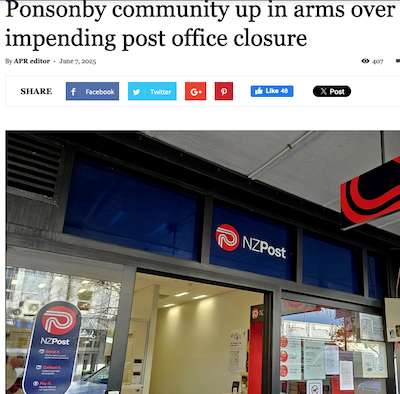
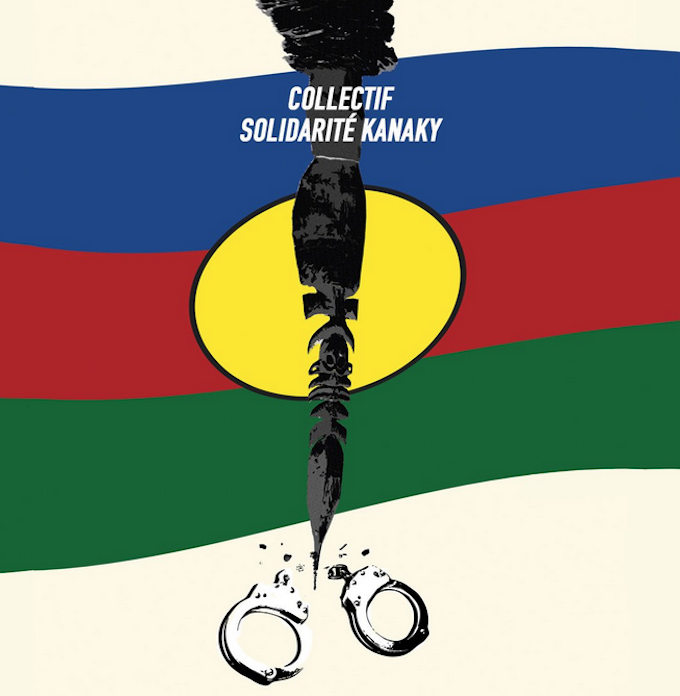

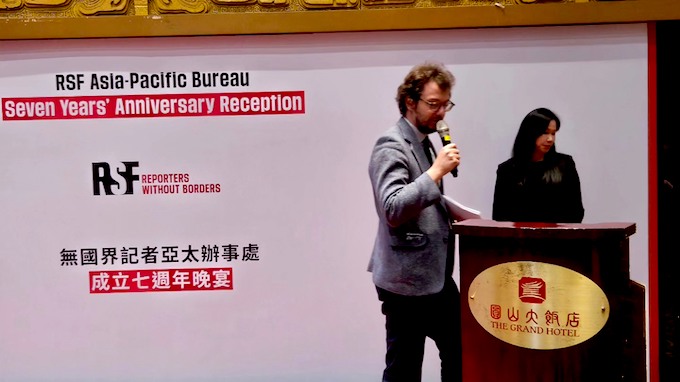
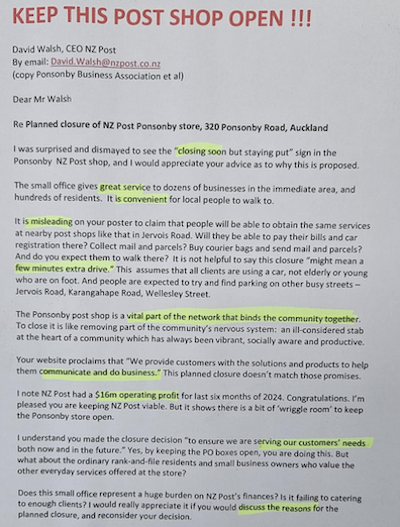







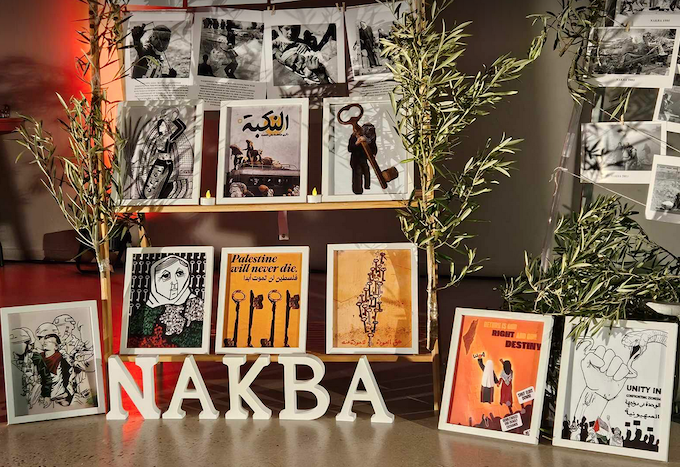



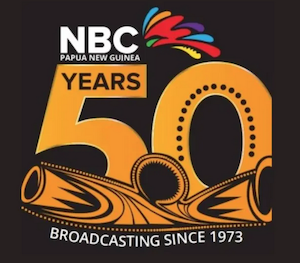
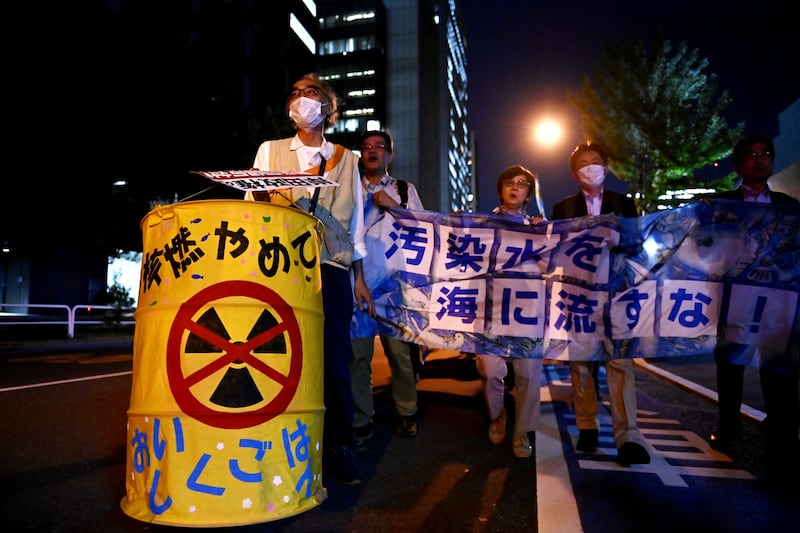
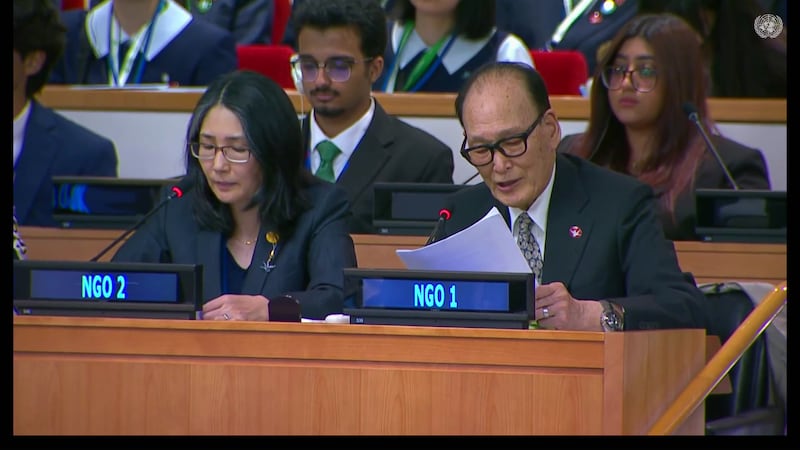
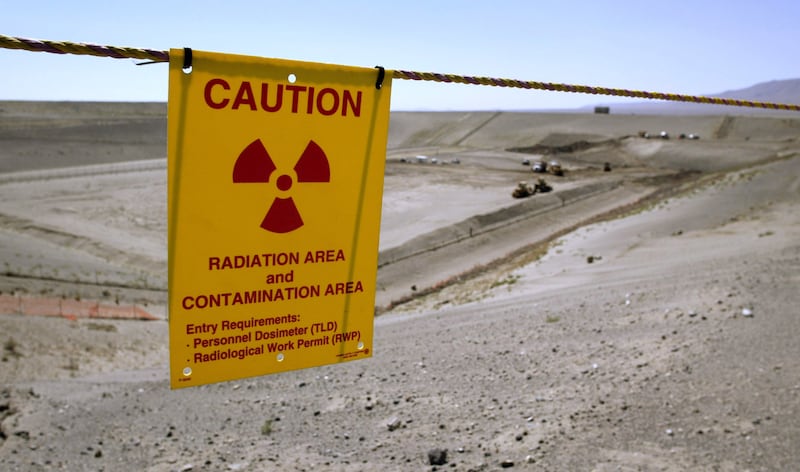
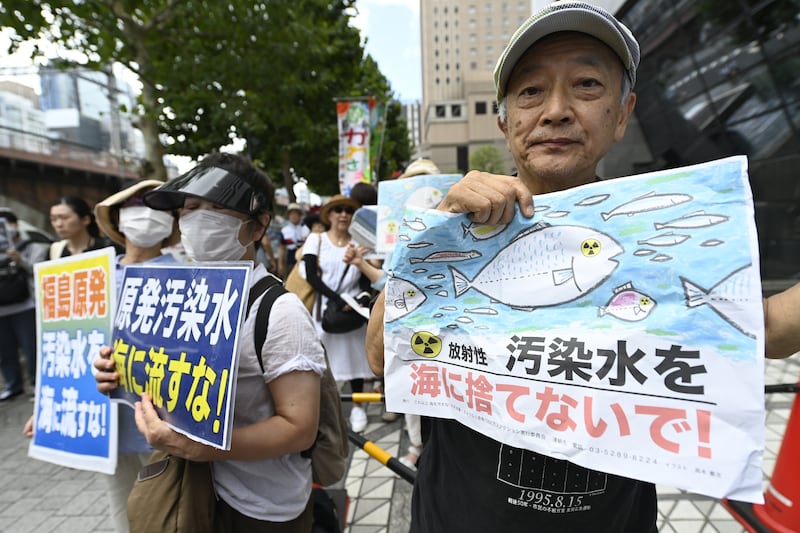
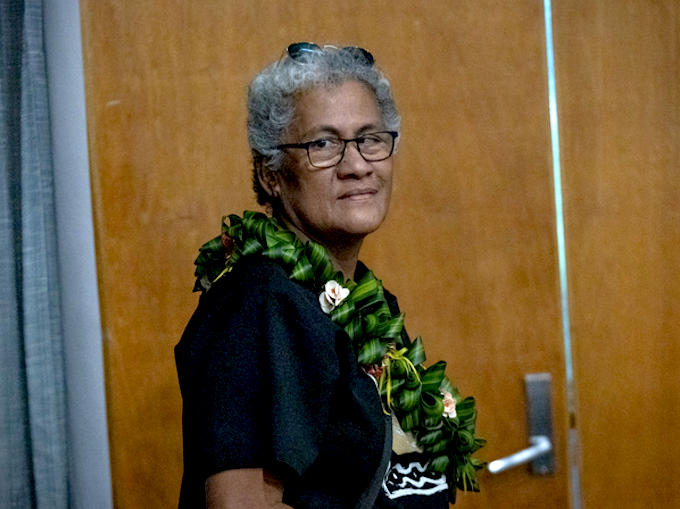
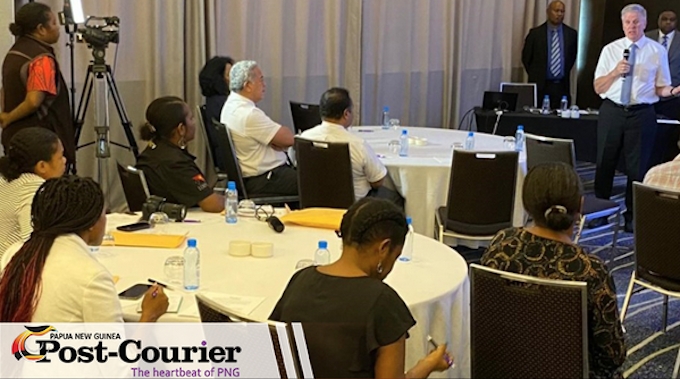
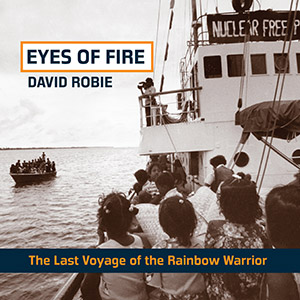

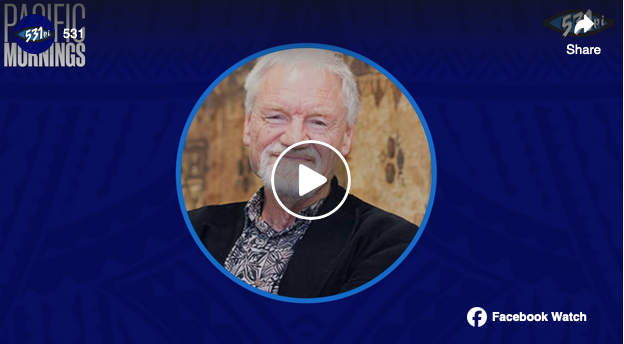
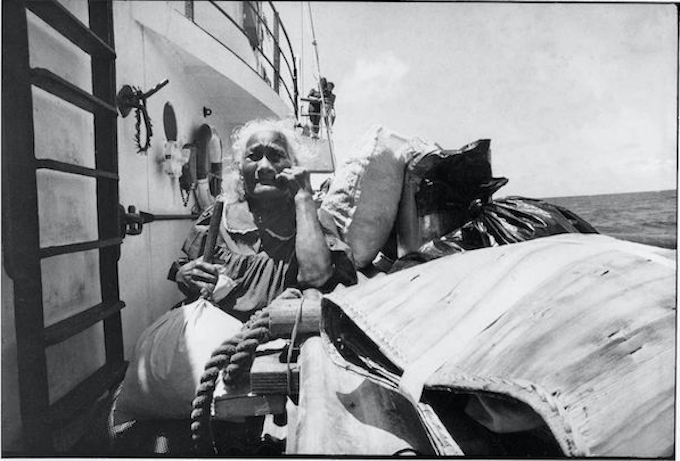
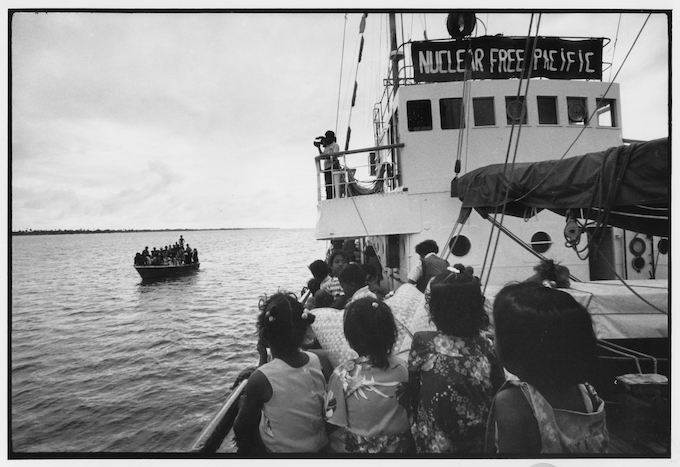
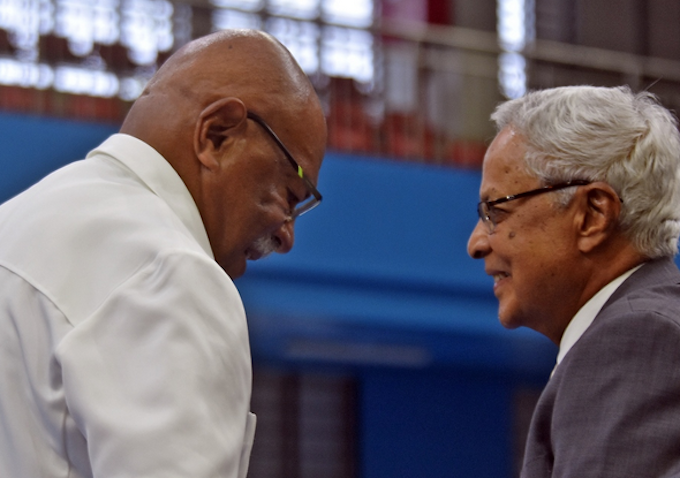
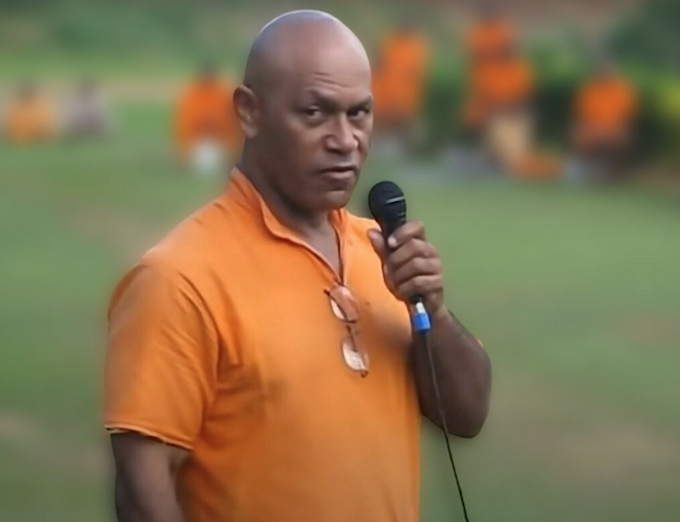
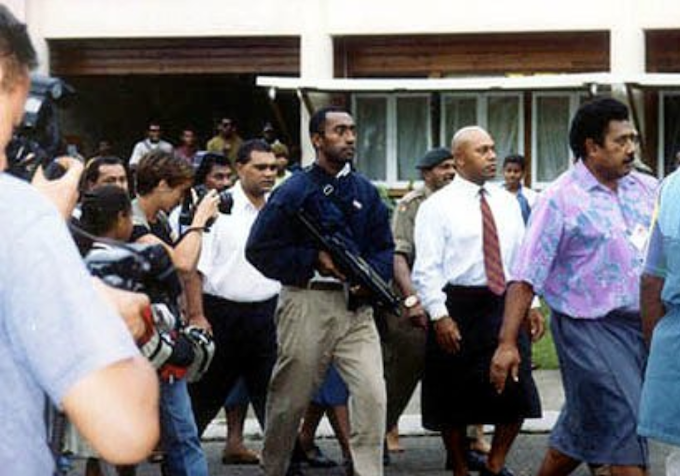
 @chrishehim.bsky.social
@chrishehim.bsky.social  (@ChrisHeHim1)
(@ChrisHeHim1) 